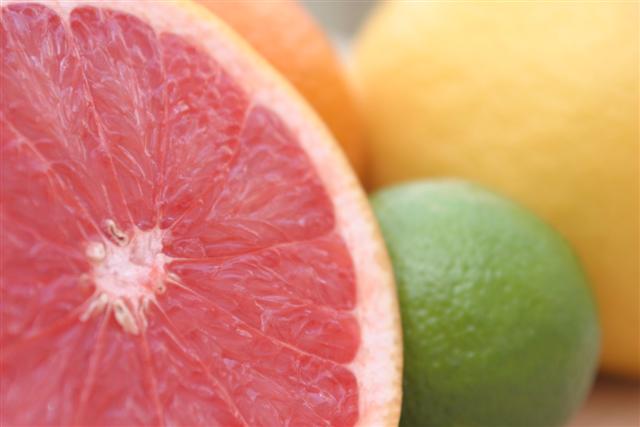- Home
- About Us

Citrus forms an important part of our product range
Read moreAbout Us
- How We Work

We have own roses under cultivation in Bulgaria
Read moreHow We Work
- News
- Products
- Services

We ship to more than 50 countries worldwide
Read moreServices
- Contact Us
- Home
- Products
Products
We are committed to providing only the highest quality of flavour and fragrance ingredients on demand to our customers worldwide. Our diverse product list offers a selection of over 250 natural and synthetic aroma chemicals, coolants, essential oils and extracts. Even if you cannot find a specific product you are looking for, do contact us as we may still be able to help.
Filter products by:
Clear allKeyword or product code
Onion Oil Mexican Type (Synthetic) n/a
In view of the high price of the pure and natural essential oil of onion, this synthetic quality provides a very good alternative. This product complies with the Food Chemical Codex and tends to have a fairly stable price throughout the year.
Synthetic | DMA Code: 800859 | CAS Number: 629-19-6 | FEMA Number: 3228
Orange Essence Oil Citrus sinensis (L.) Osbeck
Essences can be collected from fresh juice in a number of ways including partial distillation prior to juice evaporation or by condensation of volatiles from the early stages of evaporation. De-oiling juice is important as the acid pH causes chemical degradation of the terpenes, which leads to off-flavours. Two phases, namely aqueous and oil, are obtained during recovery. Essence oil phase is generally used in the beverage and fragrance industry. The composition of essence oils is similar to that of peel oils but the essence oils usually contain a larger amount of aliphatic ethyl esters. Thus, their aroma resembles that of a particular juice more than that of peel oils.
EU Natural | DMA Code: 800392 | CAS Number: 8028-48-6 | FEMA Number: 2825
Orange Essence Oil 10-Fold Citrus sinensis (L.) Osbeck
Essences can be collected from fresh juice in a number of ways, including partial distillation prior to juice evaporation or by condensation of volatiles from the early stages of evaporation. De-oiling juice is important as the acid pH causes chemical degradation of the terpenes, which leads to off-flavours. Two phases, namely aqueous and oil, are obtained during recovery. Essence oil phase is generally used in the beverage and fragrance industry. The composition of essence oils is similar to that of peel oils but the essence oils usually contain a larger amount of aliphatic ethyl esters. Thus, their aroma resembles that of a particular juice more than that of peel oils.
EU Natural | DMA Code: 800393 | CAS Number: 8028-48-6 | FEMA Number: n/a
Orange Essence Oil 20-Fold Top Notes Citrus sinensis (L.) Osbeck
The high terpene content in citrus oils can limit their application in water-based food and beverage consumer products. Partial or full deterpenation of the oil results in improved solubility and varying odour profiles depending on both the method and extent to which it is carried out.
EU Natural | DMA Code: 800394 | CAS Number: 8028-48-6 | FEMA Number: n/a
Orange Juice Carbonyls Citrus sinensis (L.) Osbeck
Orange juice carbonyls are natural mixtures of aldehydes, ketones, alcohols and sesquiterpenes produced from orange essence oil.
EU Natural | DMA Code: 800398 | CAS Number: 8028-48-6 | FEMA Number: n/a
Orange Oil Brazilian Type Citrus sinensis (L.) Osbeck
The cold pressed orange oil is a by-product of orange juice production and represents approximately 5% of the turnover of the large orange juice producers in Brazil and Florida. The oil is expressed from the skin as the orange fruit is squashed to produce the juice. The oil is then processed further and the waxes removed through chilling and centrifugation.
EU Natural | DMA Code: 800387 | CAS Number: 8028-48-6 | FEMA Number: 2825
Orange Oil Brazilian Type 10-Fold Citrus sinensis (L.) Osbeck
The high terpene content in citrus oils can limit their application in water-based food and beverage consumer products. Partial or full deterpenation of the oil results in improved solubility and varying odour profiles depending on both the method and extent to which it is carried out.
EU Natural | DMA Code: 800389 | CAS Number: 8028-48-6 | FEMA Number: 2826
Orange Oil Brazilian Type 5-Fold Citrus sinensis (L.) Osbeck
The high terpene content in citrus oils can limit their application in water-based food and beverage consumer products. Partial or full deterpenation of the oil results in improved solubility and varying odour profiles depending on both the method and extent to which it is carried out.
EU Natural | DMA Code: 800388 | CAS Number: 8028-48-6 | FEMA Number: 2825
Orange Oil California Type Citrus sinensis (L.) Osbeck
Washington Navel is the second most important orange variety in the world after Valencia. It is the leading variety in Brazil, California, Paraguay, South Africa, Australia and Japan. The oil is expressed from the skin as the orange fruit is squashed to collect the juice. The oil is further processed and the waxes removed by chilling and centrifugation.
EU Natural | DMA Code: 800390 | CAS Number: 8028-48-6 | FEMA Number: 2824
Orange Oil California Type 10-Fold Citrus sinensis (L.) Osbeck
The high terpene content in citrus oils can limit their application in water-based food and beverage consumer products. Partial or full deterpenation of the oil results in improved solubility and varying odour profiles depending on both the method and extent to which it is carried out.
EU Natural | DMA Code: 800539 | CAS Number: 8028-48-6 | FEMA Number: 2826
Orange Oil California Type 5-Fold Citrus sinensis (L.) Osbeck
The high terpene content in citrus oils can limit their application in water-based food and beverage consumer products. Partial or full deterpenation of the oil results in improved solubility and varying odour profiles depending on both the method and extent to which it is carried out.
EU Natural | DMA Code: 800391 | CAS Number: 8028-48-6 | FEMA Number: n/a
Orange Oil Florida Midseason Type Citrus sinensis (L.) Osbeck
The favourite mid-season orange in Florida, 'Pineapple' orange originated from seedlings planted c. 1860 near Citra, FL. The fruit are medium large, somewhat flattened on both ends, with a moderately thick, smooth peel that develops a good orange color under cool night conditions. Valencene and aldehyde levels in mid-season oil are typically lower than in the later 'Valencia'. Juice colour and quality are very good.
EU Natural | DMA Code: 800395 | CAS Number: 8028-48-6 | FEMA Number: 2825
Orange Oil Florida Midseason Type 10-Fold Citrus sinensis (L.) Osbeck
The high terpene content in citrus oils can limit their application in water-based food and beverage consumer products. Partial or full deterpenation of the oil results in improved solubility and varying odour profiles depending on both the method and extent to which it is carried out.
EU Natural | DMA Code: 800397 | CAS Number: 8028-48-6 | FEMA Number: 2826
Orange Oil Florida Midseason Type 5-Fold Citrus sinensis (L.) Osbeck
The high terpene content in citrus oils can limit their application in water-based food and beverage consumer products. Partial or full deterpenation of the oil results in improved solubility and varying odour profiles depending on both the method and extent to which it is carried out.
EU Natural | DMA Code: 800396 | CAS Number: 8028-48-6 | FEMA Number: 2825
Orange Oil Valencia Type Citrus sinensis (L.) Osbeck
Valencia is the world's most important orange variety. It originated in either Spain or Portugal and was introduced to Florida in 1870. A major variety in Florida, California, South Africa and Australia, Valencia grows well, is easy to cultivate and very productive. Importantly, it is a late variety and keeps well on the tree, which enables picking until late spring, or even early summer. This prolongs the season and increases productivity.
EU Natural | DMA Code: 800401 | CAS Number: 8028-48-6 | FEMA Number: 2825
Orange Oil Valencia Type 5-Fold Citrus sinensis (L.) Osbeck
The high terpene content in citrus oils can limit their application in water-based food and beverage consumer products. Partial or full deterpenation of the oil results in improved solubility and varying odour profiles depending on both the method and extent to which it is carried out.
EU Natural | DMA Code: 800402 | CAS Number: 8028-48-6 | FEMA Number: 2826
Orange Oil West Indian Wild Sweet Citrus sinensis (L.) Osbeck
The wild variety of sweet orange produces oil with a particularly zesty odour, which is primarily used in the flavour industry for beverages and confectionery.
EU Natural | DMA Code: 800385 | CAS Number: 8028-48-6 | FEMA Number: 2825
Orange Terpenes Citrus sinensis (L.) Osbeck
Chemically similar but organoleptically superior to d-limonene, the terpenes are by-products of the concentration of orange oil through vacuum distillation. The price depends on the demand for folded oils, giving manufacturers the choice to allocate the production costs to the terpenes or to the folded oils to accommodate the demand.
EU Natural | DMA Code: 800400 | CAS Number: 68647-72-3 | FEMA Number: n/a
Origanum Oil Thymus capitatus L. Hoffmans & Link
Various species of orgianum are grown worldwide, with the main regions of production of oil being in Russia, Eastern Europe and Spain. The oil, which is known to be a skin irritant, is produced by steam distillation of the dried flowering herb.
EU Natural | DMA Code: 800923 | CAS Number: 90131-59-2 | FEMA Number: 2828
Osmanthus Absolute Osmanthus fragrans Lour.
Osmanthus, which is native to China, is an evergreen bush that can grow into a tree of over 10 metres. The fragrance of its delicate pale yellow flowers can only be extracted by solvent into a concrete. It is also used in China as a herbal tea as well as a fragrance for jam.
EU Natural | DMA Code: 800490 | CAS Number: 92347-21-2 | FEMA Number: 3750
Email Sign up
You have been successfully signed up to the De Monchy newsletter
What you'll receive in every monthly De Monchy Newsletter
- A round up of the latest news from the flavour & fragrance industry.
- Insight into the effects of currency fluctuations, political unrest and severe weather on a range of flavour and fragrance raw materials.
- Our opinion on likely market movements including buy recommendations and suggestions of what to watch.

